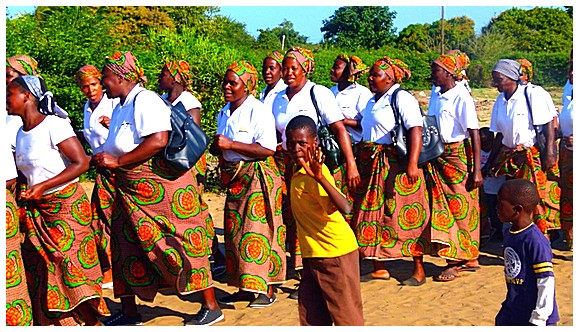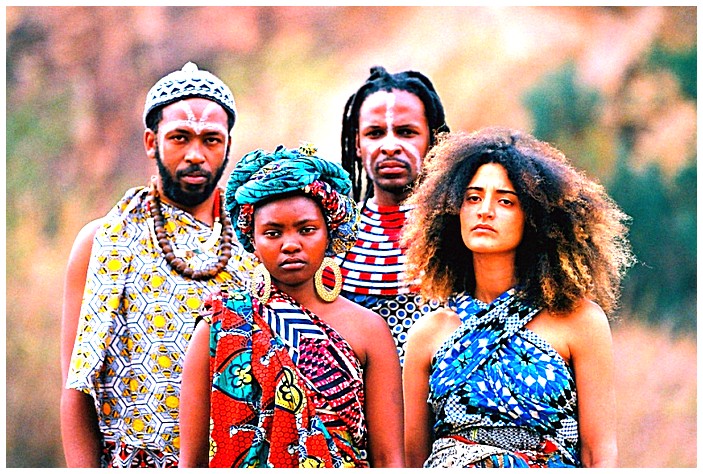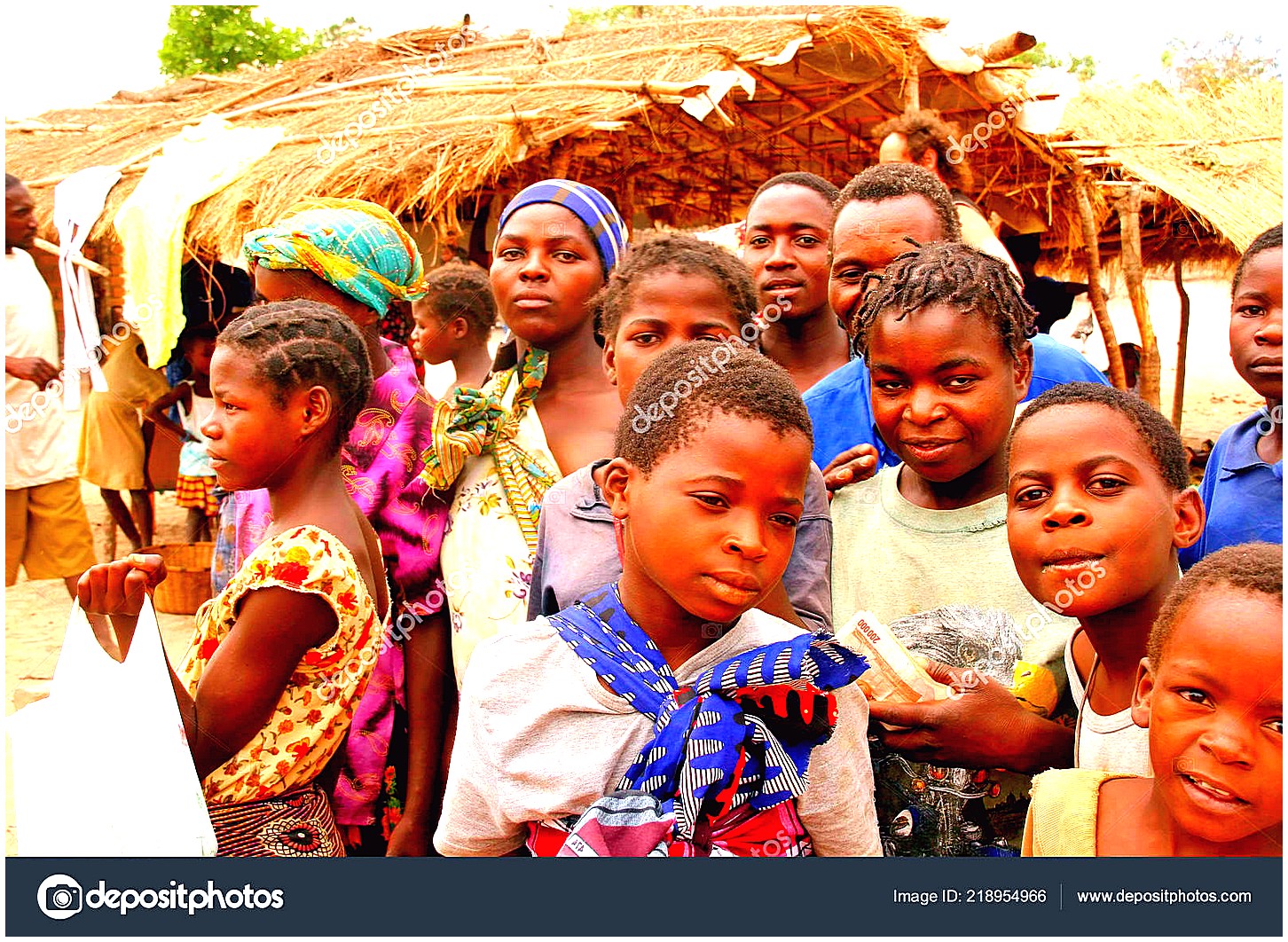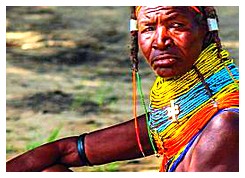Introduction to the Etoro People of Mozambique

The Etoro people of Mozambique are an indigenous ethnic group living in the northern part of the country. They have a unique culture and language, which is still spoken by many members of their community today. This article will explore the history, customs, and traditions of this fascinating group. We will look at how they live their lives and what makes them different from other cultures in Mozambique. Additionally, we will discuss some current issues facing the Etoro people as well as potential solutions to these problems. By understanding more about this vibrant culture, we can better appreciate its beauty and importance to our world today.
Historical Context of the Etoro People

The Etoro people are an ethnic group living in the Cabo Delgado Province of Mozambique. They have a long and rich history, dating back to the 12th century when they first settled in the region. Throughout their history, they have been known for their unique culture and customs which include matrilineal inheritance, polygamy, and ancestor worship. The Etoro also practice traditional medicine as well as having strong ties to nature and conservation efforts. In recent years, the Etoro have faced displacement due to conflict between government forces and rebel groups in northern Mozambique. Despite this difficult situation, many members of the community continue to practice their traditional beliefs while adapting to modern life.
Traditional Beliefs and Practices of the Etoro People

The Etoro people of Mozambique have a rich and unique set of traditional beliefs and practices that shape their culture. The most important belief is the concept of “Ngwara”, which refers to the interconnectedness between humans, nature, and the spiritual world. This belief system guides how they interact with each other and their environment.
In addition to Ngwara, the Etoro also practice ancestor worship as part of their religious traditions. They believe that ancestors can influence events in this life through supernatural powers or by providing guidance from beyond the grave. Ancestor worship is an integral part of many ceremonies such as weddings or funerals where offerings are made to honor them.
Another key element in Etoro culture is storytelling. Stories about creation myths, family histories, moral lessons, etc., are passed down orally from generation to generation in order to preserve cultural values and knowledge for future generations. Storytelling plays an important role in teaching children about social norms while entertaining them at the same time.
Finally, music plays a significant role in everyday life for members of this community; it serves both practical purposes (such as helping farmers work together) as well as entertainment purposes (like dancing). Music helps bring people together during celebrations like weddings or births while also allowing individuals to express themselves creatively through songwriting or playing instruments like drums or flutes.. All these traditional beliefs and practices help form a strong sense of identity among members of this vibrant community who strive to keep alive its rich cultural heritage despite outside influences trying to change it over time
The Role of Women in Etoro Society

The Etoro people of Mozambique have a unique and complex social structure that has evolved over time. Women play an important role in this society, both socially and economically. They are responsible for the majority of agricultural labor, as well as providing food for their families. Women also hold positions of authority within the community, such as being elders or village chiefs. Additionally, women are expected to be respected by all members of the community and have a say in decision-making processes. In some cases, they may even serve as mediators between conflicting parties.
In terms of religious beliefs, women often take on roles related to fertility rituals and ancestor worship ceremonies. This is especially true among those who practice traditional forms of animism or ancestor veneration known as “ngoma” which involve singing and dancing around sacred objects or sites believed to contain ancestral spirits. As part of these ceremonies, women will often wear special clothing adorned with feathers from birds like eagles or hawks that represent power and strength associated with female deities such as Mwari (the goddess).
Overall, it is clear that women play an integral role in Etoro society; not only do they provide economic stability through their labor but they also contribute greatly to spiritual life within the community through their participation in religious activities such as ngoma ceremonies. Furthermore, due to their respected status within the community they are able to influence decisions made at both a local level and beyond – something which is essential for maintaining peace amongst different groups living together harmoniously
Language and Dialects Spoken by the Etoro People
The Etoro people of Mozambique speak a variety of languages and dialects. The main language spoken by the Etoro is Ndau, which is part of the Bantu family. Other dialects include Gogodo, Zimba, Ngwele, Dzamba and Mbochi. All these languages are closely related to each other and share many similarities in terms of grammar and vocabulary.
Education Amongst the Etoro Population
The Etoro people of Mozambique have a unique culture and way of life, which includes their educational practices. Education amongst the Etoro population is largely based on traditional methods passed down from generation to generation. These include storytelling, songs, dance, and practical skills such as farming and fishing. While formal education is not widespread among the Etoro people, there are some initiatives that aim to provide basic literacy skills in local languages. In addition to this, many children attend school outside of their villages or cities in order to gain more advanced knowledge in subjects like mathematics and science.
Education has become increasingly important for the future success of the Etoro people due to rapid changes taking place within their society as well as globalization trends occurring around them. As such, it is essential that they receive access to quality education so that they can be equipped with the necessary tools for survival in today’s world. This could involve providing resources for schools located near Etoro communities or even offering scholarships for those wishing to pursue higher levels of learning outside of their home country. Ultimately, investing in education amongst the Etoro population will help ensure a brighter future for generations to come while also preserving their rich cultural heritage at the same time.
Social Structures Within the Community
The Etoro people of Mozambique have a unique social structure that has been shaped by their environment and culture. The community is divided into three distinct groups: the elders, the middle-aged adults, and the young adults. Each group has its own responsibilities within the community.
The elders are responsible for leading ceremonies and rituals as well as providing guidance to younger generations on how to live in harmony with nature. They also serve as spiritual advisors who help maintain peace among members of the tribe.
Middle-aged adults are typically responsible for hunting, fishing, gathering food from local resources, and providing care for children in their family unit. They also take part in decision making regarding tribal affairs such as land use or dispute resolution between families or clans.
Younger adults are often tasked with helping out around camp sites during festivals or gatherings while learning traditional skills from older generations such as weaving baskets or crafting tools used for hunting and fishing activities. They may also be involved in agricultural activities such as planting crops or tending livestock if they live near an area where these activities can be done safely without disrupting wildlife habitats nearby.
Overall, this social structure allows all members of the Etoro community to work together towards common goals while respecting each other’s roles within society which helps ensure that everyone is taken care of regardless of age or gender differences among them
Economic Activities Engaged In By The Community
The Etoro people of Mozambique engage in a variety of economic activities, including subsistence farming, fishing, hunting and gathering wild fruits and nuts. They also produce crafts such as baskets and mats for sale at local markets. The Etoro are known for their skill in trading goods with other nearby communities. In addition to these traditional activities, some members of the community have begun to pursue more modern occupations such as teaching or working in small businesses.
Cultural Artifacts Created By The Etoro People
The Etoro people of Mozambique have a rich cultural heritage that is reflected in the artifacts they create. These include intricately carved masks, traditional musical instruments such as drums and flutes, jewelry made from shells and beads, woven baskets, pottery vessels, wood carvings and more. The Etoro also use natural materials to make tools for hunting and fishing. In addition to these physical artifacts, the Etoro people are known for their storytelling traditions which often involve music or dance performances. By exploring the cultural artifacts created by the Etoro people we can gain insight into their unique way of life and culture.
Preservation Efforts for Maintaining Traditional Culture
The Etoro people of Mozambique have a long and rich history that is deeply rooted in their traditional culture. In order to ensure the preservation of this culture, there are several efforts being made by both the government and local organizations.
One way in which the Etoro people are preserving their culture is through language revitalization initiatives. The Etoro language has been passed down from generation to generation for centuries, but it is now at risk of becoming extinct due to globalization and modernization. To combat this, various organizations have launched programs aimed at teaching younger generations how to speak the language as well as providing resources for adults who wish to learn or relearn it.
Another effort being made towards preserving traditional culture involves encouraging community-based activities such as festivals and celebrations that honor cultural traditions. These events provide an opportunity for members of the community to come together and celebrate their heritage while also introducing new generations to important aspects of their identity such as music, dance, art, storytelling, cuisine, etc. Additionally, these events often feature educational components where elders can share stories about past customs with younger members of the tribe so they can gain a better understanding of what life was like before modern technology changed everything around them.
Finally, another way in which traditional cultures are preserved is through research projects conducted by anthropologists or other scholars who study indigenous peoples’ ways of life. By documenting things like rituals and ceremonies practiced by certain tribes or groups within a population over time – along with any changes that may occur – researchers can help create an archive that will serve as evidence for future generations about how things used to be done before modernization took hold in those areas. This type of work not only helps preserve cultural knowledge but also provides valuable insight into why certain practices evolved over time which could prove useful when trying to make decisions regarding similar issues today or in the future
| Feature | Etoro People | Other Mozambican Groups |
|---|---|---|
| Language | Etoro | Various Bantu languages |
| Religion | Animism | Christianity, Islam |
| Social Structure | Matrilineal | Patrilineal |
| Economy | Subsistence | Agriculture, Fishing |
What are the traditional beliefs and customs of the Etoro people?
The traditional beliefs and customs of the Etoro people are based on a spiritual connection to nature. They believe that all living things have spirits, including plants, animals, rocks, rivers and mountains. This belief system is known as animism. The Etoro also practice ancestor worship and believe in reincarnation. Rituals such as singing, dancing and feasting are important parts of their culture. They also practice male initiation rites which involve scarification or body modification to signify adulthood. Other aspects of their culture include polygamy (multiple wives), bride price payments for marriage and strict taboos against incestuous relationships.
How has their culture been impacted by colonization and globalization?
Colonization and globalization have had a profound impact on the culture of many societies around the world. Colonization has often resulted in the destruction or alteration of traditional cultures, as colonizers imposed their own values, beliefs, and customs upon those they conquered. Globalization has also had an effect on local cultures, as it has led to increased contact between different peoples and nations. This exchange of ideas and goods can lead to both positive cultural changes such as new forms of art or music, but it can also result in negative effects such as cultural homogenization or loss of traditional knowledge.
What challenges have the Etoro people faced in preserving their cultural identity?
The Etoro people have faced a number of challenges in preserving their cultural identity, including the encroachment of outside cultures and religions, the displacement of traditional land and resources due to development projects, and the impact of climate change. Additionally, they have experienced difficulties maintaining their language as younger generations become more exposed to other languages. They also face threats from tourism which can lead to changes in local customs and traditions.
How does the Etoro community interact with other ethnic groups in Mozambique?
The Etoro community in Mozambique interacts with other ethnic groups by engaging in cultural exchange, learning from each other’s experiences and knowledge, and working together to promote peace and understanding. They also work together on projects such as health initiatives, agricultural development, education programs, and economic growth. The Etoro people have a strong sense of solidarity with their neighbors which has enabled them to build strong relationships across different cultures.
What roles do women play within the Etoro society?
Women play a significant role in the Etoro society. They are responsible for raising children, maintaining the home and providing food for their families. Women also take part in ceremonies and rituals, as well as decision-making processes within the community. In addition to this, women are involved in craft production such as basket weaving and pottery making.
Are there any initiatives or organizations working to protect and promote Etoro culture and traditions?
Yes, there are several initiatives and organizations working to protect and promote Etoro culture and traditions. These include the Etoro Cultural Centre in Papua New Guinea, which works to preserve traditional customs through educational programs; the Etoro Heritage Foundation, which works to document cultural heritage; the Global Indigenous Network for Sustainable Development (GINSD), which advocates for indigenous rights; and the World Council of Etoros, an international organization dedicated to preserving traditional values.
What impact has tourism had on the lives of members of this indigenous group?
The impact of tourism on the lives of members of an indigenous group can vary greatly depending on the specific circumstances. In some cases, it may provide a much-needed source of income for people who are struggling to make ends meet and can help them to preserve their culture and traditions. On the other hand, it can also lead to exploitation, cultural appropriation, and environmental degradation if not managed properly. Tourism has both positive and negative impacts on indigenous groups, so careful consideration should be taken when evaluating its effects.
Is there anything unique about their language, art, music, or cuisine that sets them apart from other tribes in Mozambique?
Yes, the Makonde people of Mozambique have a unique language, art, music and cuisine that sets them apart from other tribes in Mozambique. Their language is called Kimakonde and it has been spoken by the Makonde people for centuries. The Makonde are known for their woodcarvings which feature intricate designs and abstract shapes. They also have a distinct style of music which incorporates traditional instruments such as drums and xylophones. Finally, their cuisine includes dishes like Matapa (a stew made with cassava leaves) and Xima (a porridge-like dish made with cornmeal).

05.05.2023 @ 13:42
en play a central role in ancestor worship ceremonies, where they are responsible for preparing offerings and leading prayers. However, despite their important contributions to Etoro society, women still face challenges such as limited access to education and healthcare. Efforts are being made to address these issues and empower women within the community. Overall, the Etoro people of Mozambique have a rich and fascinating culture that is worth exploring and learning about. Their traditional beliefs and practices, as well as their unique social structure, offer valuable insights into the diversity of human experience. It is important to support and preserve the cultural heritage of indigenous communities like the Etoro, while also working towards addressing the challenges they face in the modern world.